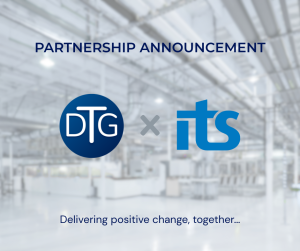UK manufacturing could reduce carbon emissions by 25% through digitalisation
Earlier this year, the Chemical Industries Association (CIA) issued its latest thinking on the impact and potential of digitisation for the sector. The Digitalisation in the Chemical Industry report reviewed the current status of digitisation within the UK sector before suggesting a way forward, including defining a role for Government in helping adoption.
The UK chemical and pharmaceutical industries are manufacturing’s number one export earner and a provider of essential inputs to UK value chains, including products and technologies which are key enablers of climate change.
The sector currently adds over £18 billion of value to the economy on sales of over £50 billion and is responsible for around 500,000 direct and indirect jobs.
We spoke to DTG’s Managing Director, Ian Allan to understand more about the report and ways in which DTG can support the sector.
Ian, what does the report tell us about the current sector appetite for digital?
Due to the large amount of data generated by chemical plants, the opportunity for embracing digital is huge, as most of the data currently collected goes unused. A survey, conducted as part of the report suggests that many companies are at the start of their digitisation journey. Deployment is conservative and very targeted, with few yet seeing the full benefits it has to offer. However, with 80% of companies reporting an increase in investment in digital technologies, a momentum shift is on its way.
What is the size of the prize on offer, for companies prepared to fully adopt digitalisation?
The Made Smarter Review, commissioned by the UK Government in 2017, identified a potential prize of £455 billion for UK manufacturing over 10 years, with the creation of 175,000 jobs, a productivity increase of 25% by 2025 and a carbon emissions reduction of 25%.
So why are companies reluctant to fully commit to digitalisation?
The report identified a number of barriers that will potentially impede the adoption of new technologies, namely, cyber security threat, skills, lack of Industry 4.0 understanding, limited access to innovation, poor infrastructure, perceived cost, limited empirical evidence and existing legacy.
How can DTG help?
As a digital transformation company, we have all the skills, experience, knowledge, and tools to help businesses overcome the barriers mentioned above. In order to make the right first step in the adoption of digitalisation, you need to understand the journey ahead and how to deal with the bumps in the road that will inevitably appear. This is very much our strength, in helping clients both develop a Digitalisation Strategy and then assisting in its deployment including Digital Culture Training and Cyber Security Assessment.
For example, we recently completed such a baseline activity with Sterling Pharma, supported the Manufacturing Skills Academy with our training and launched a revolutionary Industrial Cyber Assessment tool (CAsT).
The report concluded if the sector is to realise the full benefits digitisation has to offer, it is critical that there be both more confidence in the benefits digitisation can provide and an improved understanding of where these benefits can best be obtained.
DTG are ideally placed to support the chemical and pharmaceutical industries in achieving this.
For more information, contact us at [email protected] or visit our website www.digtechgroup.com.





